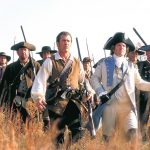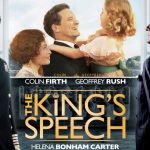🎬 Witness for the Prosecution (1957): A Courtroom Drama Filled with Twists, Deception, and a Legendary Finale
- movies
- October 23, 2024
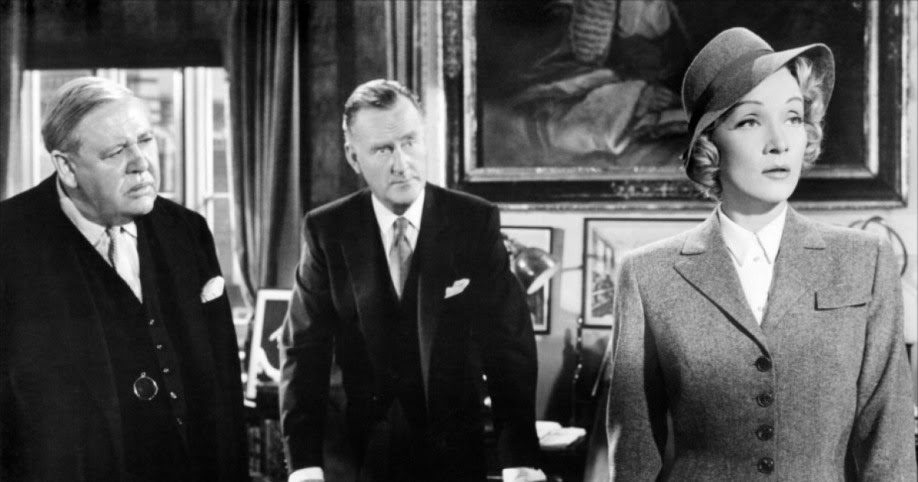
Witness for the Prosecution (1957) is a classic legal thriller directed by the iconic Billy Wilder and based on the Agatha Christie play of the same name. Starring Charles Laughton, Marlene Dietrich, and Tyrone Power, the film is a masterclass in courtroom drama, filled with sharp wit, suspenseful twists, and outstanding performances. Witness for the Prosecution stands as one of the finest examples of its genre, with a narrative that keeps viewers guessing until the very end. But what is it about this film that makes it such a timeless classic?
Plot Overview:
Set in post-war London, the film follows Sir Wilfrid Robarts (Charles Laughton), an ailing yet brilliant barrister who has just returned home after a long hospital stay. Against the advice of his nurse Miss Plimsoll (Elsa Lanchester), Sir Wilfrid is lured into taking on the defense of Leonard Vole (Tyrone Power), a charming but down-on-his-luck man accused of murdering a wealthy widow, Emily French, who had recently changed her will to leave him a large inheritance.
The case against Vole seems airtight, with circumstantial evidence stacking up and the prosecution, led by Mr. Myers (Torin Thatcher), determined to secure a conviction. Vole’s only alibi is his wife, Christine (Marlene Dietrich), a cold and mysterious woman whose testimony takes an unexpected turn when she is called as a witness for the prosecution, rather than the defense. Christine’s betrayal leaves Vole seemingly defenseless, and Sir Wilfrid must use all his cunning to unravel the truth.
As the trial unfolds, the audience is taken on a rollercoaster ride of twists, turns, and shocking revelations, leading to one of the most famous climactic twists in cinema history.
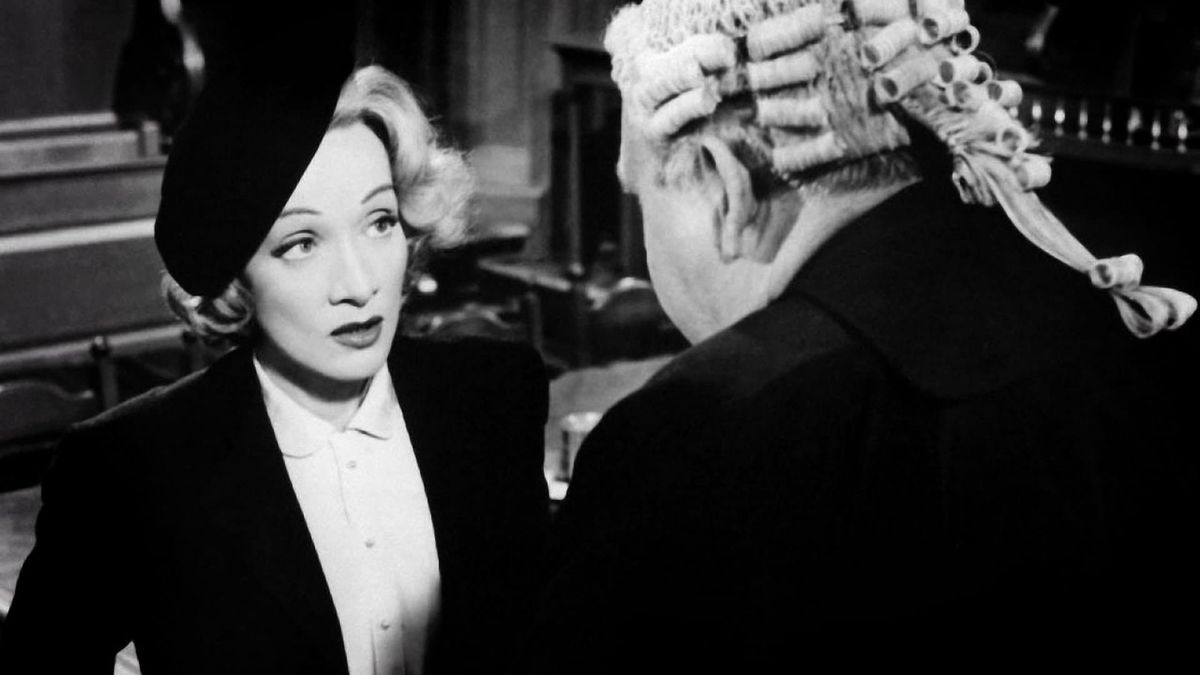
Character Development and Themes:
At the heart of Witness for the Prosecution is the brilliant performance by Charles Laughton as Sir Wilfrid Robarts. Laughton portrays Sir Wilfrid as a sharp, witty, and somewhat curmudgeonly barrister whose love for the courtroom is as undeniable as his need for justice. Despite his failing health, Sir Wilfrid takes on the challenge of defending Vole with gusto, using his keen intellect and experience to outmaneuver the prosecution at every turn. Laughton’s portrayal is both humorous and commanding, and his banter with his overbearing nurse, Miss Plimsoll, adds a layer of levity to the otherwise intense proceedings.
Marlene Dietrich delivers a standout performance as Christine Vole, one of the most enigmatic and complex characters in the film. Christine’s icy demeanor, combined with her seemingly calculated betrayal of her husband, keeps both the audience and Sir Wilfrid guessing. Dietrich’s portrayal of Christine’s cold, detached exterior hides a deeper, more cunning intelligence, and she plays the role with a level of ambiguity that makes her true intentions difficult to discern until the final moments.
Tyrone Power, in his final film role, plays Leonard Vole with charm and desperation. Power’s Vole is a man caught in a web of lies and manipulation, and his performance keeps the audience questioning whether he is truly innocent or a master manipulator. Power’s portrayal strikes the perfect balance between vulnerability and suspicion, keeping the viewer on edge throughout the trial.
The film explores themes of deception, justice, and the limits of trust. As Sir Wilfrid digs deeper into the case, it becomes clear that everyone involved is hiding something, and the film plays with the audience’s expectations, constantly shifting perspectives. Witness for the Prosecution questions whether we can ever truly know the truth or if justice is simply a matter of who can present the most convincing performance in court.
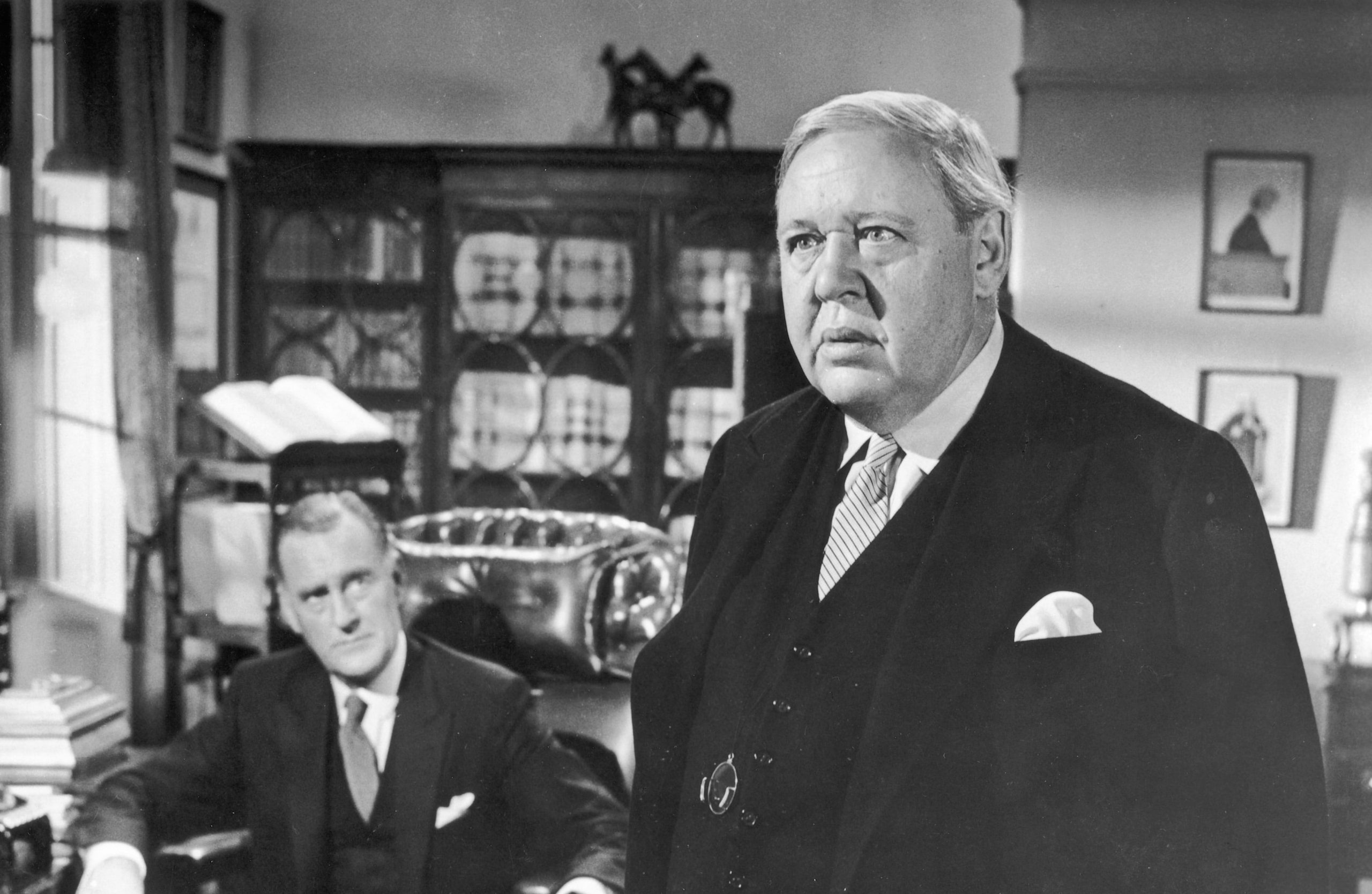
Twists and Narrative Structure:
One of the defining features of Witness for the Prosecution is its expertly crafted narrative structure, which keeps the audience engaged and guessing until the very end. The film plays out as a traditional courtroom drama, with Sir Wilfrid meticulously picking apart the prosecution’s case, but it’s the unexpected twists that elevate the film to greatness.
The film’s most famous twist—Christine’s betrayal of her husband when she testifies against him—completely upends the trial and leaves Sir Wilfrid scrambling for a new defense strategy. But the film doesn’t stop there. In the final moments, the audience is hit with a second, even more shocking twist that recontextualizes everything that came before: Christine’s testimony was part of an elaborate scheme to manipulate the jury, and she had planned Leonard’s acquittal all along. However, in a final turn of fate, Leonard’s true nature is revealed, leading to a chilling conclusion.
The film’s pacing is pitch-perfect, with the tension building steadily as Sir Wilfrid uncovers new layers of deceit. The use of flashbacks during Christine’s testimony adds depth to the mystery, allowing the audience to piece together the puzzle alongside Sir Wilfrid.
Cinematography and Visual Style:
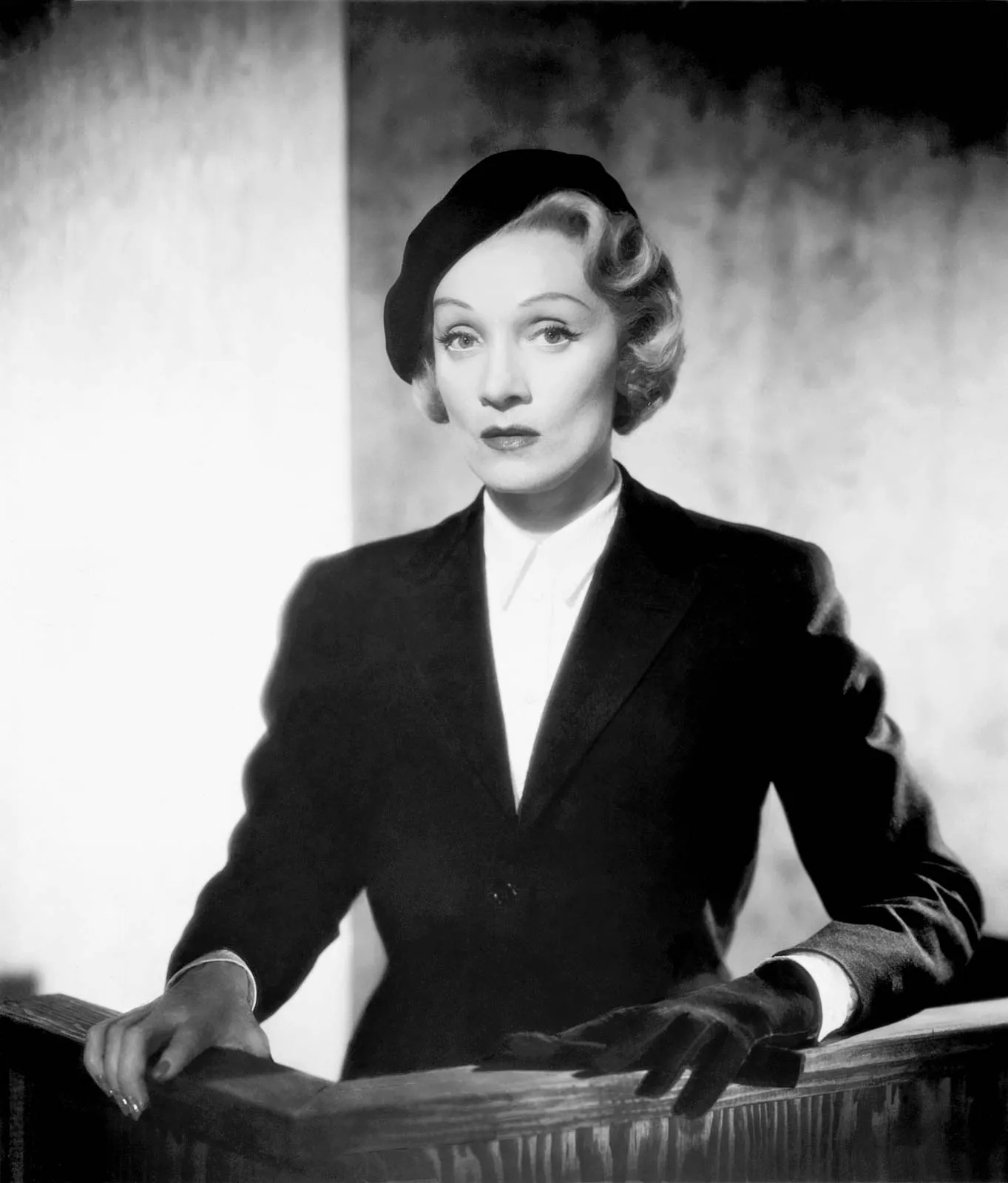
Billy Wilder’s direction is subtle yet effective, allowing the story and performances to take center stage. The courtroom scenes are shot with a sense of realism and intimacy, drawing the audience into the drama unfolding between the lawyers, witnesses, and jury. The film’s black-and-white cinematography enhances its noir atmosphere, with sharp contrasts between light and shadow mirroring the moral ambiguities of the characters.
The set design is minimal, focusing primarily on the courtroom and Sir Wilfrid’s chambers, but the simplicity of the settings allows the dialogue and performances to shine. Wilder’s focus on character interactions rather than flashy visuals gives the film a timeless quality, where the tension is derived from the characters’ actions and motivations rather than from spectacle.
Criticism:
While Witness for the Prosecution is widely regarded as a classic, some modern viewers may find the film’s pacing a bit slow compared to contemporary courtroom dramas. The film relies heavily on dialogue and character interactions, which may not appeal to audiences expecting more action or dramatic visual sequences.
Additionally, the film’s final twist, while shocking and effective, may feel somewhat dated for today’s audiences, who are accustomed to more complex and layered storytelling. However, Witness for the Prosecution remains a masterclass in narrative structure, and its twists still pack a punch for first-time viewers.
Final Thoughts:

Witness for the Prosecution is a courtroom drama of the highest order, filled with suspense, brilliant performances, and one of the most memorable twists in cinema history. Charles Laughton’s portrayal of Sir Wilfrid Robarts is a tour de force, and the film’s exploration of deception, justice, and human fallibility makes it a compelling watch even decades after its release.
For fans of classic cinema, courtroom dramas, and Agatha Christie’s work, Witness for the Prosecution is a must-see. Its timeless appeal lies in its sharp writing, expert direction, and the way it plays with audience expectations, delivering a narrative that is as intellectually engaging as it is thrilling.
Movie Information:
- Title: Witness for the Prosecution
- Director: Billy Wilder
- Starring: Charles Laughton, Marlene Dietrich, Tyrone Power, Elsa Lanchester
- Genre: Drama, Mystery, Crime
- Release Date: December 17, 1957
- Running Time: 116 minutes
- Rating: Not Rated
- Plot Summary: Sir Wilfrid Robarts, a brilliant but ailing barrister, takes on the case of Leonard Vole, a man accused of murdering a wealthy widow for her money. As the trial progresses, shocking twists and betrayals unfold, culminating in a final twist that changes everything.
SUGGESTED VIDEO FOR YOU:
[Movie Review] Survival War In The 333-Story Vertical Prison || The Platform 2
[Movie Review] The Legend of a Hero Specializing in Hunting the Most Terrible Monsters in Greece



